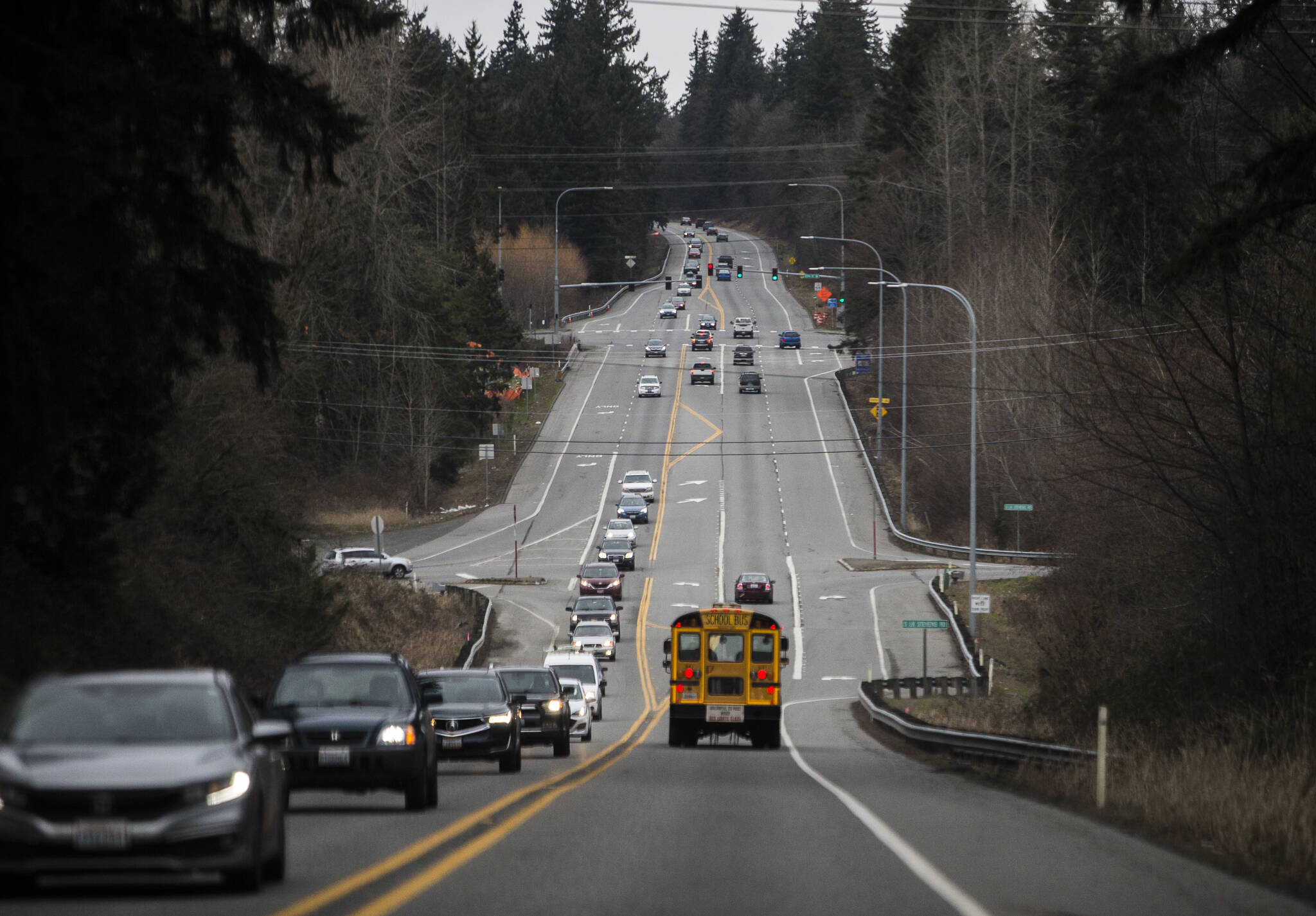LAKE STEVENS — A long-awaited transition plan, laying out accessibility barriers on city sidewalks and a proposed schedule to fix them, has been finalized in Lake Stevens.
Its findings were stark: Only 11% of curb ramps, 6% of sidewalks and 0% of push buttons in Lake Stevens were compliant with the Americans with Disabilities Act, not including facilities owned by the state.
When will all sidewalks in the city be accessible?
Possibly not until 2046.
The plan has a contentious history.
City engineer Kim Klinkers presented a draft of the plan at a City Council meeting March 28. It estimates a total cost of $37 million to remove all barriers to ADA compliance. At a rate of about $1.6 million per year, the amount that the plan expected to be available annually, the project would take 23 years to complete.
The city could choose to invest more, however, to shorten the timeline. The plan shows if they contributed an extra $2 million per year, for example, the city could finish removing those barriers in just 10 years.
Complaints about accessibility in Lake Stevens stretch back years. In 2018, an investigation triggered by an anonymous complaint found it “possible the ADA compliance of any sidewalk ramps … was not closely reviewed.” Sidewalks are required by the federal law to have ramps that meet width and slope standards, among other requirements.
The city began working on the new plan in July 2022, hiring engineering firm Transpo Group as consultants in August.
In September, Lake Stevens received a letter from the state Department of Transportation warning officials the city was ineligible for federal funds until they came up with a plan to resolve ADA compliance issues.
At a council meeting Nov. 1, some City Council members expressed frustration that Lake Stevens seemed to be singled out when other cities had similar problems.
After the city responded to the letter, conveying an intent to address the issues in the next year, WSDOT sent another letter in November stating that it would not withhold federal funds for now. That was contingent, however, on the city meeting deadlines, including completing the transition plan by the end of March 2023.
The plan was submitted to WSDOT on Friday.
Important locations, like schools and public transportation, will get higher priority for a fix under the Transpo Group plan. The plan also took into account the severity of each violation, as well as the results of a December public survey in which residents could indicate their preferences for scheduling upgrades.
ADA allows for situations in which it is not possible to fully comply with accessibility standards. That caveat may be relevant in Lake Stevens where topography could make compliance difficult in some cases, Transpo Group’s Ryan Peterson noted at the meeting March 28, though that was not taken into account when calculating cost estimates.
A self-evaluation of ADA compliance in city-owned parks and buildings, which were not included in the current plan, was underway this month and set to be completed this year.
At the March meeting, council member Mary Dickinson showed support for the project. Council member Gary Petershagen, however, expressed concerns about the projected cost. He also questioned how the city would deal with shifting ADA standards in the future.
“These things were built when the standards were such and now we’re having to fix all these things, and it’s a moving target, the next 20 years,” Petershagen said.
Peterson clarified at the meeting that the city is not required to replace structures that were built to a previous standard.
However, projects completed in recent years also had ADA compliance issues. A 2021 WSDOT report found possible violations in multiple Lake Stevens projects from the past few years, including the 2017 Pavement Overlay Project and 2018 improvements to Lundeen Park. Some of those issues have since been fixed. The city has committed to correcting the rest of the violations in that report by September.
Anna Zivarts, director of the Disability Mobility Initiative at Disability Rights Washington, said in an interview that the timeline for the project was doable and that despite complaints about the price tag, the cost was manageable. She pointed to the U.S. 2 westbound trestle replacement project, which has been awarded $210 million in funds from the state and is projected to cost hundreds of millions of dollars. Lake Stevens is among the cities that would likely contribute to its funding.
“It’s interesting to me the difference in priority between something like this, that they were finally compelled to do (by WSDOT) … and the city’s focus on the trestle,” Zivarts said.
She also noted many cities throughout the state do not have ADA transition plans, partly because of lack of oversight in past years. The Lake Stevens plan, she said, is long overdue.
“That transition plan should have been in progress in the ’90s” when ADA was passed, Zivarts said. “It’s a real failure that it wasn’t taken seriously until last year.”
Sophia Gates: 425-339-3035; sophia.gates@heraldnet.com; Twitter: @SophiaSGates.
Talk to us
> Give us your news tips.
> Send us a letter to the editor.
> More Herald contact information.

























